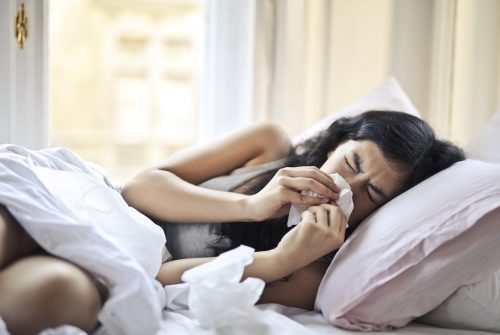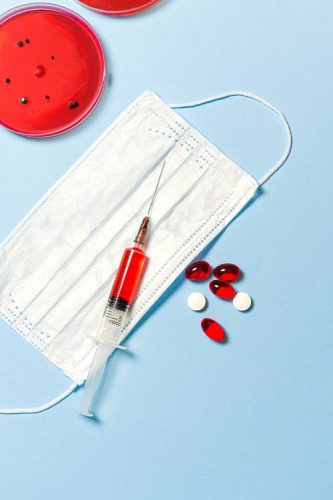Based on the available data from the Centers for Disease Control and Prevention (CDC), individuals who are older (over the age of 65) are at higher risk of getting infected with COVID-19. However, the data also shows that those patients with underlying medical conditions, regardless of their age, are prone to the virus infection as well. Some of these conditions to look out for are lung disease, diabetes, and cancer. With that information, it becomes challenging for those people who have a weaker immune system to avoid getting sick. The situation adds pressure because the struggle during this pandemic outbreak is too complicated for them.

Source: pexels.com
The Risk Of Getting COVID-19 Infection
Patients with a weakened immune system are potentially at risk of the Coronavirus infection. Since their defense system is vulnerable already due to their current condition, the possibility of getting infected triples their chances. Some medical conditions include lymphoma, leukemia, myeloma, and other blood-related cancer that directly affects cells of the body. Unfortunately, all individuals experiencing these health-related conditions, even if it is a mild one is at risk. Also, including those patients who are undergoing chemotherapy therapy are not exempted. With all this information, there is too much burden to bear. Most notably, for those patients who struggle to recover and survive.

Source: pexels.com
Symptoms Of COVID-19 In Cancer Patients
Symptoms of the COVID-19 infection are all the same in cancer patients’ general population. For the most part, all of them experience coughing, sneezing, headache, fever, and respiratory problems. However, one exemption to the possibility of shared symptoms is when patients get treated with steroids or other medications that treat lymphoma and leukemia. That is because the substances of these medications can suppress the development of fever and can only show signs of minor coughing without sneezing. Therefore, there is a tendency that even if patients are positive with the virus, they may end up asymptomatic due to the effect of the medication the patients currently intake. However, in general rule, cancer patients must not ignore even a single symptom of the Coronavirus. Considering their weak condition, coughing, fever, and shortness of breath may appear normal, but it is not. Therefore, if these warning signs persist, it is vital to seek medical attention immediately. If you feel you might overthink things, seek a consultation from professionals at BetterHelp.

Source: pexels.com
Test Positive For COVID-19 While Undergoing Cancer Treatment
It is essential to understand that cancer patients are the ones vulnerable to get infected at this rate. So if they test positive while undergoing chemotherapy treatment, considerations have to be made. The patients and health doctors should discuss the things they need to do to secure recovery. They need to understand that the decision on whether cancer patients need to stop or continue with any treatment process depends on a variety of factors. Some of these factors are the stage of the chemotherapy treatment, the physical condition of the individual undergoing treatment, and the severity of the Coronavirus infection to the cancer patients. It is essential that both parties understand the consequences of the situation.

Source: pexels.com
What The Cancer Patients Can Do
In a critical moment like this, cancer patients should understand that protecting their health at all costs is their priority, including mental health. Coping cancer with meditation can be a great help during this time. Whether that maybe their physical, emotional, and mental. Therefore they must recognize the practice of frequent hand hygiene. It is vital to ensure washing hands with soap for at least 20 seconds. If water is not available, utilizing hand sanitizers can be an option as well. But it should contain at least 60% alcohol in it. Cancer patients and health providers should also avoid anyone that is sick. If possible, they should minimize exposure to people in large crowds as well. Thus, they should practice physical distancing and limit any forms of physical engagements
